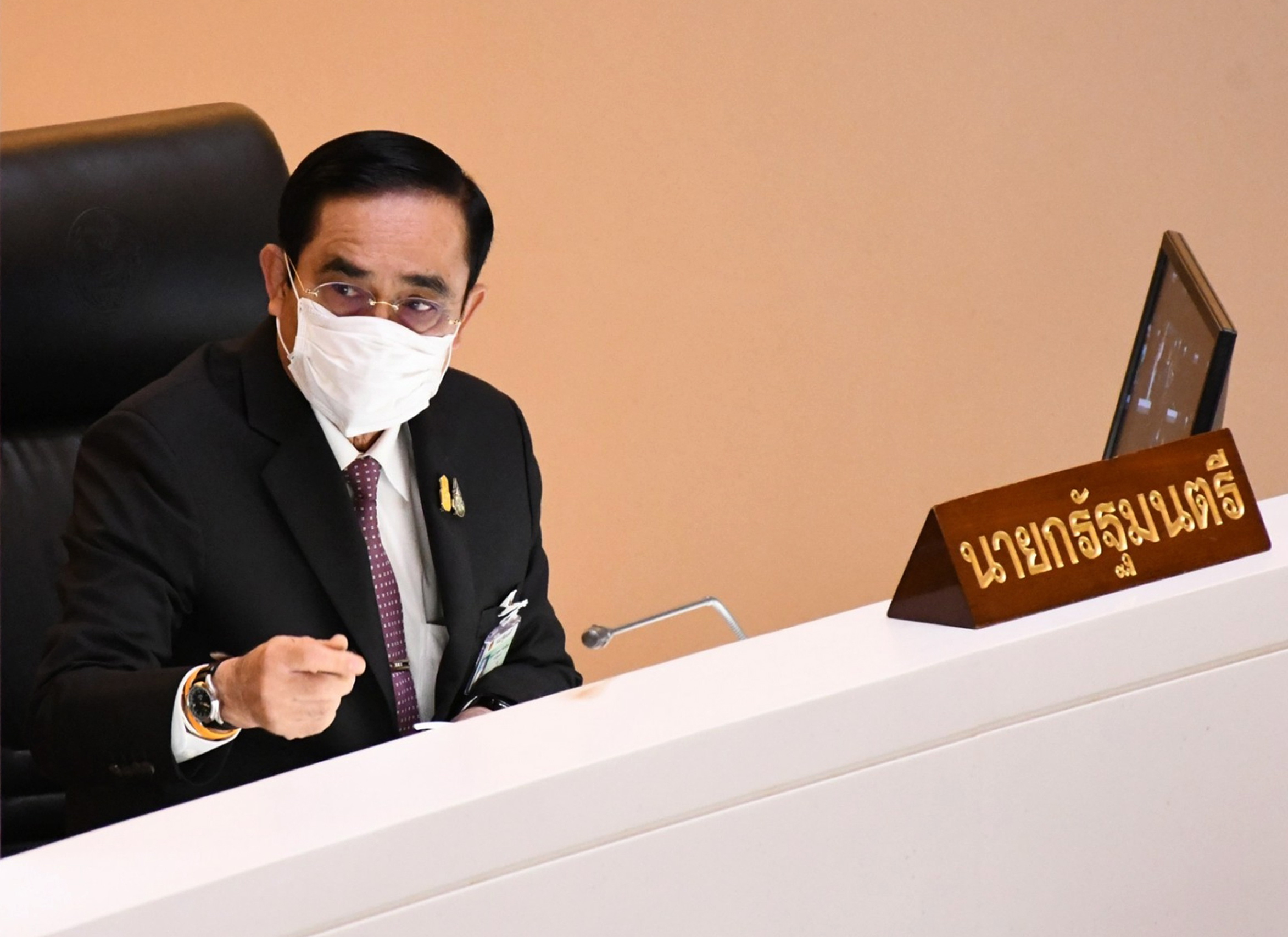Thai PM survives no-confidence motion, but analyst says votes signal divisions in ruling ranks
Sign up now: Get insights on Asia's fast-moving developments

This is the second such vote against Mr Prayut Chan-o-cha this year and the third one since the 2019 election.
PHOTO: EPA-EFE
BANGKOK - Thai Prime Minister Prayut Chan-o-cha survived a parliamentary no-confidence vote on Saturday (Sept 4) following a four-day censure debate, but that did little to deter protesters demanding his resignation from gathering on the streets of the capital.
The no-confidence motion, during which Mr Prayut and five other ministers came under scrutiny for their management of the Covid-19 pandemic, was rejected by 264 legislators while 208 voted for it. There were three abstentions.
This is the second such vote against Mr Prayut this year and the third one since the 2019 election.
A former armed forces chief who staged a coup in 2014, the Prime Minister is in office because of a coalition that makes up more than half of the seats in Parliament.
While Mr Prayut survived the confidence vote, the numbers are a cause for concern as they signal growing divisions within the ruling Palang Pracharath Party (PPRP), said political analyst Punchada Sirivunnabood.
"He received the most votes against him, even more than Anutin, who was also heavily targeted during the debates," said Dr Punchada.
Deputy Prime Minister and Health Minister Anutin Charnvirakul, who during the debate defended the government's procurement of Covid-19 vaccines and testing kits as well as Thailand's initial decision not to join the international vaccine-sharing initiative Covax, survived the confidence measure with 269 votes in favour and 196 against. There were 11 abstentions.
Ahead of the vote on Friday, Mr Prayut denied there was dissension within the PPRP leadership as rumours swirled about plans to oust him.
Anti-government groups have returned to the streets in recent months to campaign for the Prime Minister's resignation.
Observers say the campaign is likely to intensify now amid mounting anger over lockdowns and Covid-19 infections fuelled by the Delta variant of the coronavirus. The impact of the pandemic has been severe on Thailand's healthcare system as well as the economy.
In recent weeks, there have been signs that the situation may be easing, even though daily infections remain relatively high. Officials reported 15,942 infections and 257 deaths on Saturday. Early last month, more than 20,000 cases were logged almost daily.
Thailand has been struggling to vaccinate its more than 70 million population, with less than 15 per cent of Thais fully vaccinated currently.
During the four-day censure debate, opposition lawmakers accused Mr Prayut, Mr Anutin and four of his Cabinet colleagues - Transport Minister Saksayam Chidchob, Agriculture and Cooperatives Minister Chalermchai Sri-on, Labour Minister Suchart Chomklin and Digital Economy and Society Minister Chaiwut Thanakamanusorn - of corruption, economic mismanagement and an inadequate response to Covid-19.
Mr Prayut has also faced accusations of paying five million baht (S$206,482) to some members of Parliament in exchange for votes of support. The Prime Minister has denied these allegations and House Speaker Chuan Leekpai has ordered a formal investigation into the bribery claim.
Saturday's vote brought respite for Mr Prayut, but perhaps only temporarily, according to Dr Punchada, who said that if the situation continued as it was - with internal party strife, daily street protests and a severe Covid-19 situation - the Prime Minister could be replaced in the next general election, due in 2023.

PHOTO: EPA-EFE
PHOTO: EPA
"Maybe the coalition parties will choose someone else as prime minister who can ease the situation in Parliament and on the streets," she said.
The demonstrations against Mr Prayut are more frequent now and at times violent, with the police resorting to tear gas, rubber bullets and water cannon in the face of protesters armed with slingshots, homemade explosives and firecrackers.
Anti-government activists have vowed to stage protests daily until Mr Prayut leaves office and thousands had gathered to demonstrate in the days leading up to the vote.
On Saturday, anti-government protesters marched through downtown Bangkok. There was a heavy police presence and the rally ended around 7pm without any violence.
Separately, another group of protesters gathered at the Din Daeng intersection, where loud explosions were heard as they lit fireworks and set tyres ablaze on the road.
The intersection has been the scene of violent confrontations between police and demonstrators in recent weeks.


